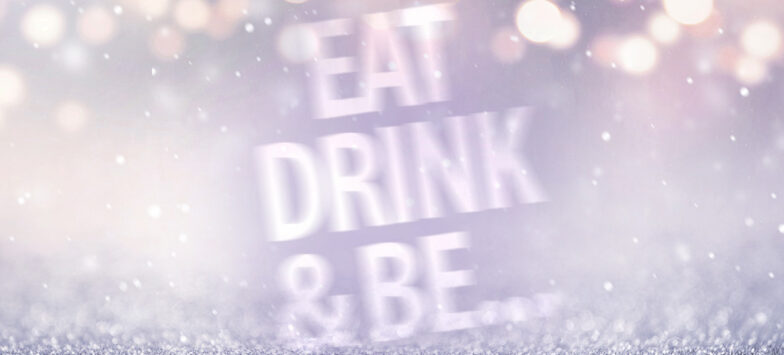
Eat, Drink & Be – Blurry? Alcohol and Your Eyes
The winter holidays come but once a year, a special time when we may be forgiven for overindulging in good food and drink. As we at Atlantic Eye wish you all the best in the holiday season, we also think this is a good time for a gentle reminder about the effects that drinking alcohol has on our eyes.
Short-term effects
In the short term, alcohol causes people to have bloodshot and dry eyes as well as blurred vision.
According to thewoodsideatparkside.com, research shows that drinking even small amounts of alcohol can lead to dryness in the eyes, because alcohol is a diuretic. This means it makes you urinate more frequently, and that dehydration can make your eyes feel dry. Alcohol also causes blood vessels in the eye to dilate, causing redness.
Even drinking one glass of wine can make your eyes feel irritated and dry, so if you’re planning to drink alcohol at all during the holidays, you might consider bringing along some moisturizing eyedrops!
Longer-term effects
Going beyond the holidays, drinking a substantial amount on a regular basis can lead to long-term consequences to your eyesight, including permanent blindness. Along with damaging so much of the body, regular overconsumption of alcohol can cause damage to the optic nerve of the eyes. This leads to alcohol-related blindness.
But how much is too much? Dietary Guidelines for Americans, an official website of the U.S. government, currently recommends limiting alcoholic beverages (if consumed) to 2 drinks or less a day for men and 1 drink or less a day for women.
In the United States, one “standard” drink contains roughly 14 grams of pure alcohol, which is found in:
• 12 ounces of regular beer, which is usually about 5% alcohol
• 5 ounces of wine, which is typically about 12% alcohol
• 1.5 ounces of distilled spirits, which is about 40% alcohol
The takeaway
Alcohol can have both short-term and long-term negative effects on your eyes. Even small amounts of alcohol can cause symptoms like redness, irritation, and blurry vision.
Longer term, alcohol consumption can seriously damage the eyes. If you think you may have an alcohol addiction, please tell your Atlantic Eye ophthalmologist, and seek help from a health professional.
Each of our patients is important to us, and together we will work to safeguard your vision into the future. All of us at Atlantic Eye wish you a joyful and healthful holiday season.
